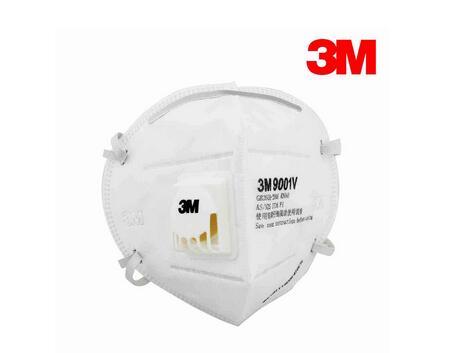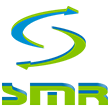Export To The United States
The U.S. Food and Drug Administration (FDA) stipulates that medical devices, food, alcohol, drugs and other factories outside the United States must be registered and a U.S. agent must be appointed before they are listed in the United States.
21CFR Part 807.40 (A) stipulates that any American overseas manufacturer engaged in the production, preparation, combination or processing of finished medical devices and importing products to the United States needs to carry out the Establishment Registration and Medical Device Listing. When registering the factory, the manufacturer needs to report the information of the U.S. agent to FDA in electronic form in the registration and listing system (FURLS system), including the name, address, telephone, fax and email of the U.S. agent.
For any product, enterprises need to register and list products.
For Class I products (accounting for about 47%), General Control is applied. Most of the products can enter the U.S. market only by registering, listing and implementing GMP specifications (few of them are exempted from GMP, and few of the reserved products need to submit 510 (K) applications to the FDA, i.e. PMN (Premarket Notification));
Export To Japan
Medical device companies wishing to put their products on the Japanese market must meet the requirements of the Japanese Pharmaceutical And Medical Device Act (PMD Act).
If Medical Device Companies Want To Put Their Products Into The Japanese Market, They Must Meet The Requirements Of Pharmaceutical And Medical Device Act (PMD Act) Of Japan.
Pharmaceutical and Medical Devices Agency (PMDA), a subordinate department of Ministry Of Health, Labor And Welfare (MHLW), has also published a small number of regulations in English. However, language problems and complicated certification procedures are still a difficult point for medical device registration in Japan.
Under the requirements of PMD Act, TOROKU registration system requires domestic manufacturers to register factory information with local competent authorities authorized by the government, including product design, production and key process information; Foreign manufacturers must register manufacturer information with PMDA.
At The Request Of PMD Act, Toroku Registration System Requires Domestic Manufacturers To Register Factory Information With Local Authorities Authorized By The Government, Including Product Design, Production And Key Process Information; Foreign Manufacturers Must Register Manufacturer Information With PMDA.
Export To South Korea
The Ministry of Health Welfare (MHW) in South Korea, referred to as the Ministry of Health for short, is mainly responsible for the management of food, drugs, cosmetics and medical devices, and is the main health care sector. According to the Medical Device Law, the Ministry of Food and Drug Safety (MFDS) under the Ministry of Health and Welfare of South Korea is responsible for the supervision of medical devices.
The Korean Medical Device Law classifies medical devices into four categories (I, II, III, IV), which are very similar to the European Union's classification of medical devices.
Korean Medical Devices Law Divides Medical Devices Into Four Categories (I, II, III And IV), Which Is Very Similar To The European Union's Classification Of Medical Devices.
Class I: medical devices with little potential danger;
Class II: medical devices with low potential danger;
Class III: medical devices with moderate potential danger;
Class IV: High risk medical devices.
Classification basis of medical devices: risk degree, contact area and time with human body, safety and effectiveness of products.
Class I and II equipment shall be certified by the "Medical Device Information Technology Support Center (MDITAC)", and some Class II (new equipment), Class III and Class IV equipment shall be approved by the Korean Food and Drug Safety Administration.
All medical devices exported to Australia need to apply for TGA registration. TGA is the abbreviation of Therapeutic Goods Administration. Its full name is the Therapeutic Goods Administration. It is the supervision agency of therapeutic commodities (including drugs, medical devices, genetic technology and blood products) in Australia.
The definition of medical devices in Australia is close to the CE of EU, and the classification is basically consistent. Different from the US FDA, animal types are not regulated by TGA. Similar to FDA, you need to specify the generation

Mask Requirements
NIOSH (National Institute Of Occupational Safety And Health) Classifies Its Certified Particulate Respirators Into 9 Categories According To HHS Regulations. The Specific Certification Is Operated By Npptl Laboratory Under NIOSH.
In The United States, According To The Minimum Filtration Efficiency Of Filter Material, Masks Can Be Divided Into Three Grades - N, R, P.
Class N Masks Can Only Filter Non Oily Particles, Such As Dust, Acid Mist, Paint Mist, Microorganism, Etc. The Suspended Particles In Air Pollution Are Mostly Non Oily.
R Mask Is Only Suitable For Filtering Oil Particles And Non Oil Particles, But The Limited Use Time For Oil Particles Shall Not Exceed 8 Hours.
Class P Masks Can Filter Both Non Oil Particles And Oil Particles. Oily Particles Such As Oil Smoke, Oil Mist, Etc.
According To The Difference Of Filtration Efficiency, There Are 90,95100 Differences, Respectively, Which Refer To The Minimum Filtration Efficiency Of 90%, 95%, 99.97% Under The Test Conditions Specified In The Standard.
N95 Is Not A Specific Product Name. As Long As The Product Meets The N95 Standard And Passes The NIOSH Review, It Can Be Called "N95 Mask".
Australia:
Necessary Information (Qualification)
Bill Of Lading, Packing List, Invoice
Mask Requirements
As / NZS 1716:2012 Is A Respiratory Protection Device Standard In Australia And New Zealand. The Manufacturing Process And Test Of Relevant Products Must Comply With This Specification.
This Standard Specifies The Procedures And Materials That Must Be Used In The Manufacturing Process Of Particle Respirators, As Well As The Determined Test And Performance Results To Ensure Their Use Safety.
Personal Mailing:
At Present, Cross-Border E-Commerce Does Not Control The Export Of Anti Epidemic Materials Such As Masks. If The Number Of Masks Is Within A Reasonable Range, The Masks Can Be Sent To Foreign Countries By Personal Post. Although Many Countries Stop Sending Mail To China, They Do Not Stop Receiving Mail And Express Delivery From China. However, The Individual Import Requirements Of Each Country Are Different, So Please Consult The Specific Requirements Of The Country Before Mailing.
Editor's Note:
1. Since The Requirements Of Each Country For Imported Masks Are Different, You Must Consult The Local Agent Company Or Receiving Company Before Exporting To Avoid The Problem Of Materials Being Withheld Or Returned.
2. The Number Of Masks For Self Use And Export Must Be Within A Reasonable Range. If The Number Is Huge, It May Be Seized By Foreign Customs.
3. At Present, The Air And Sea Transportation Capacity Has Not Been Restored, So The Current Transportation Time Is Relatively Long. Everyone Should Pay Attention To The Change Of Waybill Number After Delivery, And Also Be Patient. As Long As There Is No Violation, It Will Not Be Detained Or Returned.
Reprint Of This Article. If There Is Any Mistake Or Infringement, Please Contact Us For Correction
Post time: Mar-16-2020





